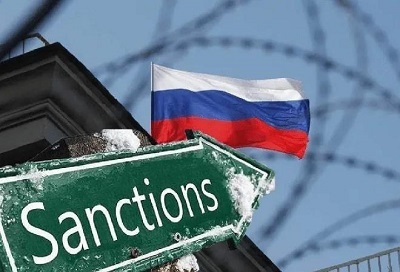Introduction
As the conflict in Eastern Europe enters its third year, the dynamics between Russia and Ukraine have evolved significantly. With Ukraine receiving substantial military aid from Western allies and escalating tensions despite peace talks excluding Russia, the role of sanctions has emerged as a critical tool in Western strategy. This article explores the effectiveness of sanctions against Russia, particularly focusing on their evolution, impact on key sectors like LNG, and broader implications for global geopolitics.
Evolution of Sanctions Against Russia
Since Russia's annexation of Crimea in 2014, sanctions imposed by Western nations have steadily intensified. Initially targeting individuals and sectors like energy and finance, these measures sought to exert pressure without crippling the broader Russian economy. Compliance varied, and enforcement challenges persisted, particularly among non-American firms facing hefty fines for violations. However, the invasion of Ukraine in 2022 prompted more severe sanctions, including the exclusion of major Russian banks from SWIFT and restrictions on critical technologies and exports.
The financial impact was evident, with Russia's export revenues shrinking and the ruble depreciating. Import substitution policies were introduced, aiming for self-sufficiency by 2030, mitigating some effects. Yet, sectors like aviation, reliant on imported components, faced severe disruptions. Despite these challenges, Russia diversified its markets, expanded trade with non-sanctioning countries like China and India, and adapted economically to mitigate sanctions' worst effects.
Sanctions on Russian LNG
A pivotal focus of recent sanctions has been Russian liquefied natural gas (LNG), a crucial export for Russia and a significant revenue source. The proposed 14th round of EU sanctions aims to restrict LNG transshipment and re-exportation, impacting Russia's ability to leverage European terminals. Previous US sanctions on LNG projects and infrastructure further constrained Russia's capacity to develop and export LNG, influencing global energy markets.
Europe's shift away from Russian natural gas towards LNG from diverse sources, including Qatar and the US, reflects strategic diversification amid geopolitical tensions. Despite efforts to reduce dependency, some European nations, historically tied to Russian energy, still face challenges in fully disengaging from Russian supplies, underscoring the complexities of energy security amidst sanctions.
Impact and Adaptation in Russia
Sanctions have undoubtedly affected Russia's economy, prompting adaptive measures by the government and the central bank. Capital controls, including high interest rates and restrictions on fund transfers, stabilized the ruble and mitigated capital flight. This, coupled with increased domestic production in defense and essential sectors, bolstered economic resilience amidst sanctions.
However, the broader economic outlook remains uncertain, with inflationary pressures and increased military spending straining long-term sustainability. Employment levels surged initially due to military-industrial demands but face potential stagnation as economic growth dynamics shift. Despite these challenges, Russia's vast resource wealth and global energy role provide buffers against the full impact of sanctions, sustaining its economic resilience amid geopolitical isolation.
Role of the Central Bank and Economic Strategies
Central to Russia's response has been the role of its central bank in managing economic shocks and ensuring stability amidst sanctions. Policies like mandatory conversion of foreign revenues into rubles and stringent capital controls have maintained domestic stability but at the cost of economic flexibility. Balancing military expenditure with public welfare remains a delicate task for Russian policymakers, highlighting the intrinsic trade-offs imposed by ongoing conflict and international sanctions.
The adaptive resilience of Russia's economy, driven by sectoral reorientation and strategic partnerships with non-sanctioning nations, underscores its capacity to navigate sanctions' impacts. Despite external pressures, Russia continues to prioritize strategic sectors like energy and defense, aiming for sustained economic functionality despite global isolation.
Conclusion
In conclusion, sanctions against Russia represent a multifaceted strategy by Western nations to curtail Russian aggression and influence. While impactful, especially in sectors like finance and energy, sanctions have prompted adaptive responses in Russia, mitigating their worst economic effects. The evolution of sanctions from targeted measures to broader economic restrictions reflects ongoing geopolitical tensions and strategic maneuvers.
Looking ahead, the effectiveness of sanctions hinges on global unity and enforcement, factors complicated by diverse national interests and energy dependencies. Russia's ability to endure sanctions, buoyed by its resource wealth and economic adaptability, poses challenges to achieving comprehensive isolation. Thus, while sanctions have exerted pressure and reshaped economic landscapes, their full efficacy in altering Russian policies remains uncertain amidst complex geopolitical realities.
In summary, the path forward involves balancing economic pressures with diplomatic strategies, reinforcing the role of sanctions in shaping global responses to Russian actions while navigating the complexities of international relations and energy security in a multipolar world.
|
Probable Questions for UPSC Mains Exam Question 1: Question 2: |
Source – The Indian Express







